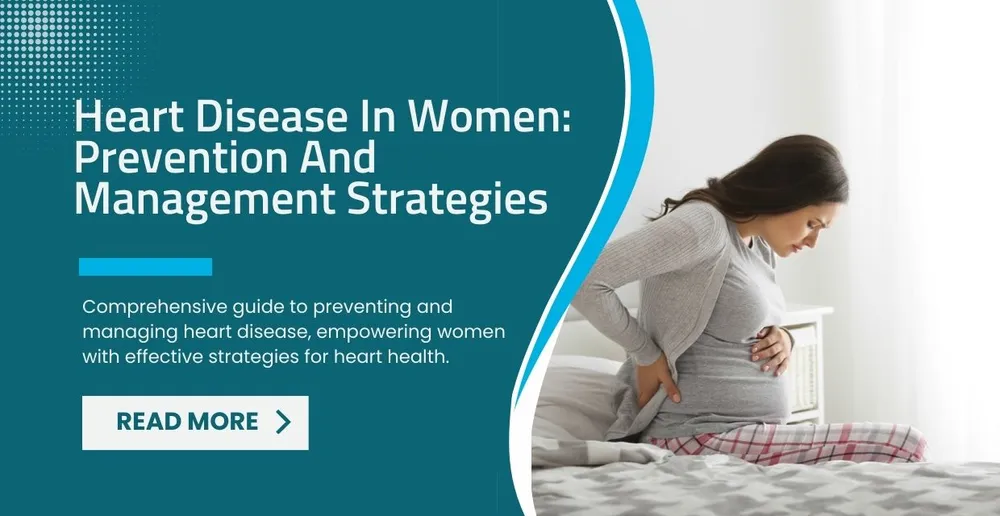Heart disease is one of the leading causes of death in women, yet it is often overlooked or not taken seriously enough.
What Causes Heart Disease In Women?
Heart disease is one of the leading causes of death in women, and it's something that you can reduce your risk of by making lifestyle changes.
One key factor that increases the risk of heart disease in women is gender. As you might expect, there are many gender-based differences when it comes to diagnosing, treating, and managing heart disease. For example, heart disease is more commonly diagnosed in men than women early on in their illness. Additionally, men tend to respond better to treatments for heart disease than women do. However, there are many ways to manage and reduce your risk of heart disease regardless of your gender.
Lifestyle changes are one way to reduce your risk of developing heart disease. For example, make sure to get enough exercise – both aerobic and resistance – every day. Eating a balanced diet rich in fruits and vegetables can also help to keep your body healthy and protect against diseases such as cancer and heart disease.
Another important way to manage your risk of heart disease is to have regular screenings and checkups with your healthcare provider. These include things like blood pressure checks and EKG tests. If you notice any changes or symptoms that suggest you may have heart disease, be sure to see a healthcare provider right away for an evaluation. In addition to making lifestyle changes, it's important to get essential nutrients such as vitamin C and iron into your body regularly. Some common medications used for the prevention or management of heart disease include statins and ACE inhibitors. Finally, connecting with a qualified healthcare provider can help you manage stress and feel more supported during this difficult time.
Best Strategies For Prevention And Management Of Heart Disease
Understanding risk factors such as diet, exercise, blood pressure, and genetics is key to preventing heart disease.
Maintaining a healthy lifestyle, including healthy eating, exercise, controlling blood pressure, and getting good sleep, can reduce the risk of heart disease.
Stress reduction is important for reducing heart disease risk.
Complementary treatments for heart disease may include medications, surgery, or alternative therapies.
Understanding family history is important for preventing heart disease.
How LifeCare Hospitals Are Making Heart Disease Prevention And Management Easier For Kenyan Women
Heart disease is the number one killer of women in the world, and it's a problem that is only going to get worse. According to World Health Organization (WHO), heart disease will cause more deaths among women than any other disease by 2030. What's worse is that heart diseases are often preventable, but many women in developing nations don't have access to the healthcare facilities necessary to manage them correctly. That's where LifeCare Hospitals comes in.
LifeCare Hospitals is a multispeciality hospital in Kenya that specializes in providing better access to care and support for Kenyan women with heart diseases. They do this by understanding the causes of heart diseases among women and targeting popular risk factors for women. Additionally, LifeCare Hospitals educates their patients on preventive measures regarding lifestyle changes such as diet, exercise, and tobacco cessation. This education not only helps Kenyan women live longer lives, but it also reduces the burden on healthcare providers who are already overwhelmed with patient loads.
In order to spread awareness about heart disease prevention and management, LifeCare Hospitals offers specific initiatives and programs such as cardiac rehabilitation therapy (CRT). CRT is a program that helps patients regain strength and function after experiencing a cardiac event such as a myocardial infarction (MI). By providing this type of support and care, LifeCare Hospitals is helping Kenyan women live healthier lives without ever having to go through surgery or take medications that may have side effects.
Heart disease isn't just an issue for wealthy countries anymore – it's an issue for everyone who wants to live a long healthy life!
To Wrap Up
Condition | Heart disease in women |
Risk factors | Traditional risk factors such as high blood pressure, high cholesterol, smoking, obesity, physical inactivity, and diabetes; as well as nontraditional risk factors such as pregnancy complications, menopause, stress, depression, and autoimmune diseases |
Prevention strategies | Regular physical activity, healthy eating, weight management, stress reduction, smoking cessation, and limiting alcohol consumption |
Management strategies | Medications (such as statins, blood pressure-lowering drugs, and aspirin), invasive procedures (such as angioplasty or bypass surgery), cardiac rehabilitation, and/or lifestyle changes |
Gender-specific considerations | Women may experience different symptoms of heart disease than men, and may also have different responses to treatments. Women may also face unique challenges in accessing care and support and may benefit from gender-specific research and education initiatives. |
Prevention during pregnancy | Managing existing medical conditions, regular prenatal care, healthy lifestyle choices, and monitoring for signs of complications (such as preeclampsia) |
Postmenopausal prevention | Hormone replacement therapy, calcium and vitamin D supplements, and regular bone density screening to reduce the risk of osteoporosis and fractures |
Heart disease is a serious and life-threatening condition for women, yet it is often overlooked or not taken seriously enough. We have discussed the causes of heart disease in women and the best strategies for prevention and management. By understanding your risk factors and making lifestyle changes, you can reduce your risk of developing heart disease. Additionally, connecting with a qualified healthcare provider can help you manage stress levels and stay supported throughout this difficult time.



